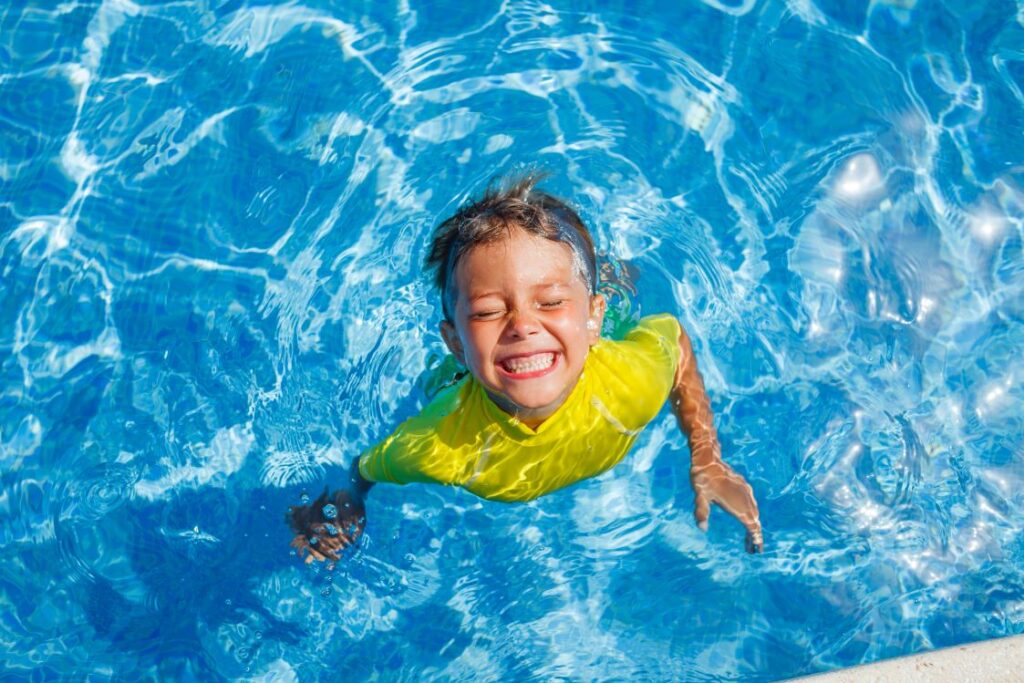
Hot weather is here, which means it’s time for you and your family to make a splash at the pool! But did you know that too much chlorine exposure can harm your child’s smile? Don’t let tooth damage dampen your fun. This summer, before you let the kids dive in headfirst, be sure to properly guard their oral health.
Why Do Pools Use Chlorine?
Chlorine is an additive used in most pools to keep the water clean and free of bacteria. Without it, your pool could be a haven for harmful germs that could cause everything from diarrhea, skin rashes, and more. But chlorine exposure can also wreak havoc on your oral health if you’re not careful, so be sure to follow these guidelines if your kids will be making a splash in the pool this summer!
What Are Oral Health Risks of Chlorine Exposure?
While a few dips in the water a week won’t necessarily pose any risk to your teeth, if your family does spend upwards of six hours a week in the water, they are at an increased risk of swimmer’s calculus, which is residue from chlorine. This residue can turn teeth brown or yellow over time and may even cause sensitivity.
How Can I Prevent Tooth Damage This Summer?
The easiest way to prevent damage to your child’s teeth while swimming is to swim in fresh or saltwater bodies instead of pools. If you do frequent the pool, however, encourage your kids to swim with their mouths closed and not drink the water.
Maintaining optimal chlorine levels is a good way to safeguard your child’s teeth from excessive exposure. If you have your own pool, the CDC recommends that the pH level sits somewhere between 7.2 and 7.8, and the free chlorine concentration should register around at least one part per million in pools and 3 parts per million in hot tubs. By following these guidelines, you can reduce the risk of danger to your family’s oral health.
After your children are done swimming for the day, make sure they brush their teeth and tongue for at least two minutes to wash away any residue from chlorine, food, or beverages. If you have any questions or concerns or notice any changes in your child’s teeth, reach out to your dentist for an evaluation.
Remember, too much of a good thing can be dangerous, especially when it comes to chlorine, so be sure to monitor your pool’s pH and encourage your family to follow these oral health protection tips before they take a dip!
About The Author
Dr. Nelson Hui and the team at The Dental Specialists Pediatric Dentistry in Garland are happy to provide cutting edge care in a family friendly environment. From our cheerful exam rooms to our all-digital care (including digital X-rays), we treat kids from birth to teens, with services ranging from general dentistry to restorations, cosmetic dentistry, and even emergency care.
If your child experiences any changes in the look and feel of their teeth or gums, please schedule an appointment with us by visiting our website or calling 972-309-9992.
